Introduction
Pregnancy is a time of careful consideration regarding what goes into your body. As expectant mothers seek natural ways to support their health, questions about supplements like reishi mushroom inevitably arise. Reishi mushroom (Ganoderma lucidum), revered in traditional Eastern medicine for thousands of years, has gained popularity in the West for its potential immune-supporting and adaptogenic properties. However, its safety during pregnancy remains a topic that deserves thorough examination.
In this comprehensive guide, we'll explore the relationship between reishi mushroom and pregnancy, examining scientific research, expert opinions, potential benefits, risks, and considerations for expectant mothers. Whether you're currently pregnant, planning to conceive, or simply researching for future reference, this article aims to provide evidence-based information to help you make informed decisions about reishi mushroom during this critical life stage.
Understanding Reishi Mushroom
What Is Reishi Mushroom?
Reishi mushroom, also known as Lingzhi or the "mushroom of immortality," is a polypore fungus that grows on hardwood trees, particularly maple. With its distinctive kidney-shaped cap and glossy, reddish-brown surface, reishi has been used in traditional Chinese medicine (TCM) for over 2,000 years. In TCM, it's considered a "superior" herb, believed to promote longevity, enhance vitality, and support overall wellness.
Modern scientific research has identified several bioactive compounds in reishi mushroom that may contribute to its potential health benefits:
- Triterpenes: Including ganoderic acids, which may have various biological effects
- Polysaccharides: Particularly beta-glucans, associated with immune function
- Peptidoglycans: Complex molecules that may influence immune responses
- Sterols: Compounds that may affect various physiological processes
- Proteins and amino acids: Building blocks for many bodily functions
These compounds are believed to work synergistically, potentially contributing to reishi's traditional reputation as a tonic for overall health.
Common Uses and Claims
In contemporary wellness circles, reishi mushroom has been used for various purposes, including:
- Supporting immune system function
- Promoting relaxation and sleep quality
- Helping the body adapt to stress (adaptogenic properties)
- Supporting liver function
- Promoting cardiovascular health
- Contributing to overall balance and wellness
However, it's important to note that while some of these uses have preliminary scientific support, others remain based primarily on traditional use and anecdotal evidence. The strength of evidence varies significantly depending on the specific health claim.
Reishi Mushroom and Pregnancy Safety
Current Research Status
When it comes to the safety of reishi mushroom during pregnancy, there is a notable lack of comprehensive clinical research specifically examining its effects on pregnant women. This research gap exists for ethical reasons - conducting experimental studies on pregnant women carries significant ethical challenges, particularly for substances without established safety profiles.
The current state of knowledge comes from:
- Animal studies: Limited research on reproductive effects in animal models
- Traditional use records: Historical accounts of reishi use during pregnancy in some cultures
- Pharmacological studies: Research on how reishi's compounds may interact with physiological processes relevant to pregnancy
- Expert consensus: Medical opinions based on known active compounds and potential effects
The lack of specific human clinical trials during pregnancy creates a situation where caution is generally advised by medical professionals.
Expert Opinions
Most healthcare providers and herbalists take a conservative approach to reishi mushroom during pregnancy. Here's what experts typically recommend:
- Conventional medical practitioners: Generally advise avoiding reishi during pregnancy due to insufficient safety data
- Integrative medicine physicians: Often recommend caution and suggest discussing with a healthcare provider before use
- Traditional Chinese medicine practitioners: Some may use reishi in specific traditional formulations during pregnancy, but typically under close supervision and in particular circumstances
- Herbalists: Opinions vary, but many suggest avoiding reishi during the first trimester at minimum, with some recommending avoidance throughout pregnancy
The consensus among Western medical practitioners tends toward avoiding untested supplements during pregnancy, following the "better safe than sorry" principle. This stance reflects not necessarily evidence of harm, but rather insufficient evidence of safety.
Potential Concerns During Pregnancy
Immune Modulation Effects
One of the most significant considerations regarding reishi during pregnancy relates to its immune-modulating properties. Reishi contains compounds that may affect immune system function, potentially in ways that could be problematic during pregnancy:
- Pregnancy requires immune tolerance: The maternal immune system must develop a tolerance to the developing fetus (which contains foreign DNA). Any significant alteration to immune function could theoretically interfere with this delicate balance.
- Autoimmune considerations: Women with autoimmune conditions may have different responses to immune-modulating substances during pregnancy.
- Unknown effects on pregnancy-specific immune adaptations: The immune system undergoes unique changes during pregnancy that haven't been studied in conjunction with reishi use.
While reishi's immune-supporting properties might seem beneficial on the surface, pregnancy involves complex immune adaptations that we don't fully understand in relation to medicinal mushrooms.
Blood-Thinning Properties
Research suggests that reishi mushroom may have mild anticoagulant (blood-thinning) effects. This property raises several concerns during pregnancy:
- Natural increase in blood volume: Pregnancy already involves a significant increase in blood volume and changes in clotting factors.
- Delivery considerations: Blood-thinning effects, even mild ones, could potentially increase bleeding risk during delivery.
- Interaction with medical interventions: Could potentially complicate medical procedures during pregnancy or childbirth.
For women who already have clotting disorders or are taking blood-thinning medications, these effects could be particularly relevant.
Hormonal Interactions
Reishi contains triterpenes and other compounds that may influence hormonal pathways, raising questions about potential effects during pregnancy:
- Hormone-sensitive tissues: Pregnancy involves dramatic hormonal changes that affect virtually every system in the body.
- Potential estrogenic activity: Some research suggests certain mushroom compounds may have weak effects on estrogen receptors, though evidence for reishi specifically is limited.
- Adrenal effects: Adaptogenic properties might influence stress hormone regulation, which undergoes significant changes during pregnancy.
Without specific studies on pregnant women, the implications of these potential hormonal interactions remain theoretical but warrant caution.
Traditional Perspectives vs. Modern Medicine
Historical Use in Different Cultures
The historical use of reishi during pregnancy varies across different cultural traditions:
- Traditional Chinese Medicine: Some classical texts mention reishi in formulations used during pregnancy, typically in combination with other herbs and for specific indications rather than general use.
- Japanese traditions: In some Japanese medical traditions, reishi was considered appropriate during pregnancy in certain circumstances.
- Western herbalism: Reishi doesn't have a significant historical presence in Western herbalism, especially during pregnancy.
It's important to note that traditional use, while informative, doesn't necessarily establish safety by modern scientific standards. Traditional use often involved different preparation methods, dosages, and cultural contexts than contemporary supplement use.
Modern Medical Approach
Modern Western medicine takes a distinctly different approach to pregnancy supplements:
- Evidence-based requirements: Requires clinical evidence of safety before recommending supplements during pregnancy
- Risk-benefit analysis: Weighs known benefits against potential risks, with a low tolerance for uncertainty during pregnancy
- Regulatory status: Notes that supplements like reishi aren't regulated like pharmaceutical drugs and may have quality, potency, and purity variations
The gap between traditional perspectives and modern medical approaches creates a challenging landscape for women seeking to make informed decisions about reishi during pregnancy.
Potential Benefits vs. Risks
Claimed Benefits During Pregnancy
Proponents of reishi mushroom sometimes suggest potential benefits during pregnancy:
- Stress management: Adaptogenic properties might theoretically help manage pregnancy-related stress
- Immune support: Could potentially support maternal immune function during seasonal challenges
- Sleep improvement: Traditional use for promoting relaxation might benefit pregnancy-related sleep difficulties
- General wellness: Overall tonic effects aligned with supporting maternal health
However, it's critical to note that these claimed benefits lack specific research support in pregnant populations and must be weighed against potential risks.
Risk Considerations
The potential risks of reishi mushroom during pregnancy include:
- Unknown developmental effects: No comprehensive studies on potential effects on fetal development
- Bleeding risk: Potential blood-thinning properties could increase bleeding risk
- Immune system alteration: Could potentially interfere with the necessary immune adaptations of pregnancy
- Individual variability: Different women may respond differently based on genetics, pre-existing conditions, etc.
- Product quality concerns: Significant variation in supplement quality, potency, contamination risk
The lack of safety data, combined with these theoretical concerns, leads most healthcare providers to recommend avoiding reishi during pregnancy as a precautionary measure.
Expert Recommendations
Medical Consensus
The general medical consensus regarding reishi mushroom during pregnancy can be summarized as:
- First trimester: Almost universally recommended to avoid all non-essential herbs and supplements, including reishi, during early fetal development
- Second and third trimesters: Continued caution advised due to insufficient safety data
- Consultation importance: Any consideration of reishi use during pregnancy should involve discussion with healthcare providers
- Alternatives: Focus on evidence-based supplements with established pregnancy safety profiles (like certain prenatal vitamins) instead
This cautious approach reflects standard medical practice regarding any substance without specific safety studies in pregnant populations.
What to Do If You've Already Consumed Reishi
For women who have consumed reishi before realizing they were pregnant or before learning about potential concerns:
- Don't panic: No specific adverse events from limited reishi use during pregnancy have been widely reported
- Discontinue use: Most experts recommend stopping reishi supplementation upon discovering pregnancy
- Inform your healthcare provider: Discuss any supplement use, including reishi, with your prenatal care team
- Monitor: Pay attention to any unusual symptoms and report them to your healthcare provider
- Focus forward: Emphasize evidence-based prenatal care moving forward
A single dose or occasional use before knowledge of pregnancy is unlikely to cause harm, based on what we currently know, but continuation throughout pregnancy is generally not recommended without medical supervision.
Safer Alternatives During Pregnancy
Evidence-Based Options
For women seeking natural support during pregnancy, several evidence-based alternatives have better safety profiles:
- Prenatal vitamins: Specifically formulated to support maternal and fetal health
- Ginger: Well-studied for pregnancy-related nausea (in appropriate forms and doses)
- Probiotics: Certain strains have been studied during pregnancy with favorable results
- Red raspberry leaf tea: Traditionally used in later pregnancy, with some supportive research
- Gentle exercise: Evidence shows benefits for both maternal and fetal outcomes
- Mindfulness practices: Research supports benefits for managing pregnancy-related stress
These alternatives provide ways to support well-being during pregnancy with a stronger evidence base for safety.
Lifestyle Approaches
Beyond supplements, several lifestyle approaches can support a healthy pregnancy:
- Nutrition-focused diet: Emphasizing whole foods rich in necessary nutrients
- Adequate hydration: Supporting amniotic fluid, blood volume, and overall function
- Quality sleep: Prioritizing good sleep hygiene and comfortable positioning
- Stress management: Regular relaxation practices, appropriate exercise, and social support
- Regular prenatal care: Maintaining scheduled check-ups and open communication with healthcare providers
These approaches offer benefits without the potential risks of unstudied supplements.
Post-Pregnancy Considerations
Breastfeeding Concerns
For new mothers considering reishi during breastfeeding, similar cautions apply:
- Limited research: Insufficient data on whether reishi compounds transfer to breast milk
- Potential effects on infants: Unknown how reishi's active compounds might affect newborns
- Immune considerations: A nursing infant's immune system is still developing
- Professional guidance: Consult with both a pediatrician and a knowledgeable healthcare provider before using reishi while breastfeeding
Many healthcare providers recommend continuing to avoid reishi during breastfeeding, at least until more research becomes available.
When to Consider Reintroducing
For women interested in reishi's potential benefits, safer times to consider introduction might include:
- After weaning: Once breastfeeding is complete
- Between pregnancies: During periods when not pregnant or breastfeeding
- With medical guidance: Under the supervision of a knowledgeable healthcare provider
- Starting gradually: Beginning with low doses to assess individual response
This conservative approach prioritizes maternal and child safety while allowing for potential benefits at more appropriate times.
Frequently Asked Questions
Is There Any Safe Dose of Reishi During Pregnancy?
No safe dose of reishi during pregnancy has been established through clinical research. While some traditional systems of medicine have used reishi during pregnancy in specific contexts, contemporary medical consensus generally recommends avoiding it throughout pregnancy due to insufficient safety data. Individual responses can vary, and without controlled studies, it's impossible to establish universally safe dosage guidelines for pregnant women.
Can Reishi Help with Pregnancy-Related Immune Suppression?
Pregnancy involves complex immune adaptations rather than simple immune suppression. While reishi has immune-modulating properties, there's no evidence that these effects are beneficial during the specific immune changes of pregnancy. The maternal immune system naturally adjusts to protect both mother and developing fetus, and interfering with this process through supplements like reishi could potentially disrupt this delicate balance. Without specific studies in pregnant populations, potential immune effects remain theoretical and could include both benefits and risks.
What About Using Reishi for Pregnancy-Related Anxiety?
Although reishi has traditionally been used to promote calm and may have adaptogenic properties, its use specifically for pregnancy-related anxiety hasn't been studied. Safer, evidence-based approaches for managing pregnancy anxiety include:
- Cognitive-behavioral therapy
- Mindfulness and meditation practices
- Gentle physical activity
- Adequate sleep hygiene
- Social support
- Professional counseling
These approaches have research supporting both their effectiveness and safety during pregnancy.
Is Cooking with Reishi (as a Culinary Mushroom) Safe During Pregnancy?
Occasional culinary use of reishi in small amounts (such as in broths or soups) likely presents lower risk than concentrated supplements, but caution is still advised. Reishi is extremely tough and woody, making it unsuitable as a primary culinary mushroom. It's typically used in small amounts to add medicinal properties to broths rather than as a substantial food ingredient. If considering culinary use during pregnancy, consult with a healthcare provider and keep amounts minimal.
Conclusion
Navigating decisions about supplements like reishi mushroom during pregnancy requires balancing traditional knowledge, modern scientific understanding, and a prudent approach to maternal and fetal health. While reishi has a long history of use in some traditional medical systems and shows promising properties in preliminary research, its safety profile during pregnancy remains largely undefined.
The general medical consensus leans toward avoiding reishi during pregnancy and breastfeeding due to:
- Insufficient safety data from clinical studies
- Theoretical concerns about immune modulation
- Potential blood-thinning effects
- Possible hormonal interactions
- Variable quality and potency in commercially available products
This doesn't necessarily mean reishi is harmful during pregnancy, but rather that we lack the evidence to confidently declare it safe. Given that pregnancy represents a uniquely vulnerable period of development, most healthcare providers recommend taking a conservative approach by avoiding unproven supplements.
For women interested in the potential benefits of reishi, consider waiting until after pregnancy and breastfeeding are complete, or explore evidence-based alternatives with established safety profiles. As always, any decision regarding supplements during pregnancy should involve discussion with qualified healthcare providers familiar with your individual health history and pregnancy status.
The best approach to a healthy pregnancy continues to be a foundation of proper nutrition, regular prenatal care, appropriate physical activity, stress management, and evidence-based supplementation as recommended by healthcare providers. While traditional wisdom offers valuable insights, combining it with modern scientific understanding helps ensure the best outcomes for both mother and baby.





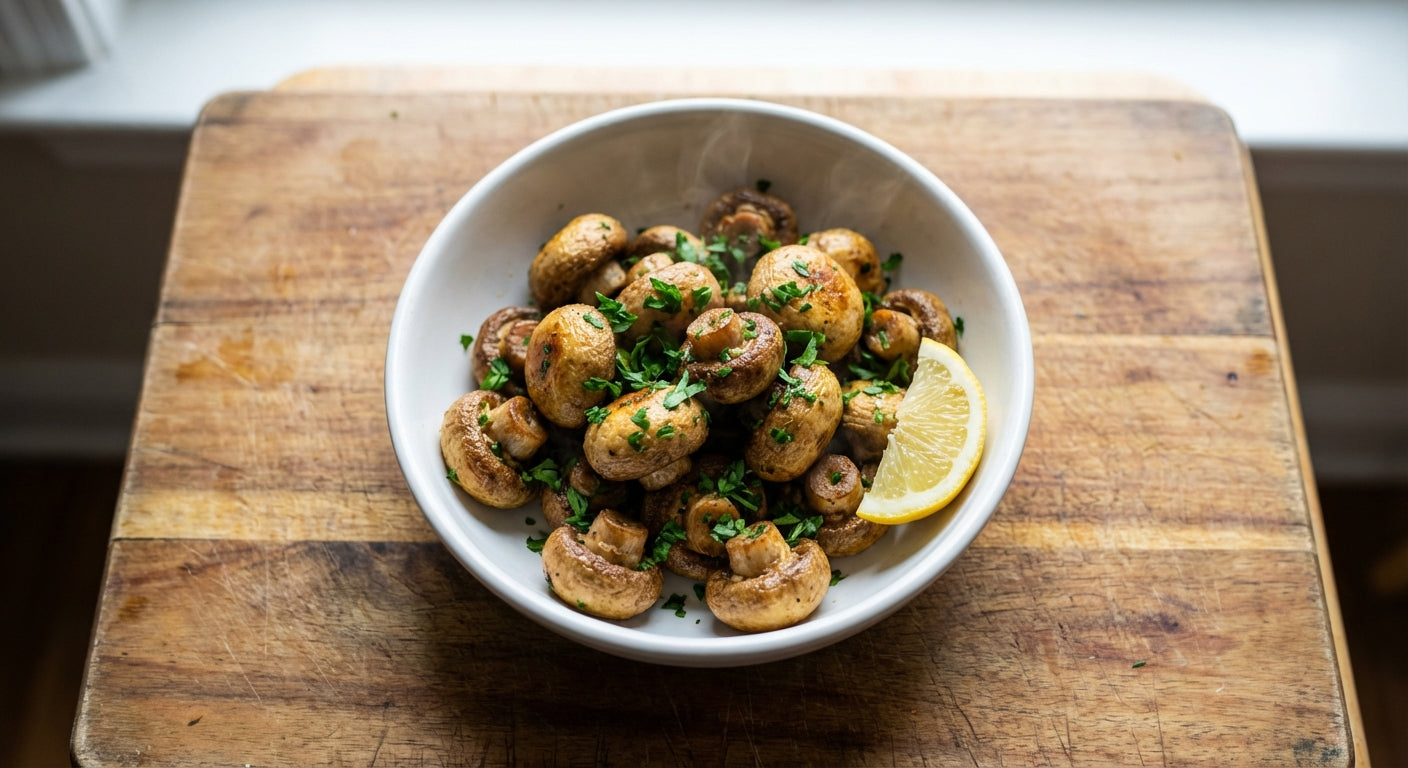


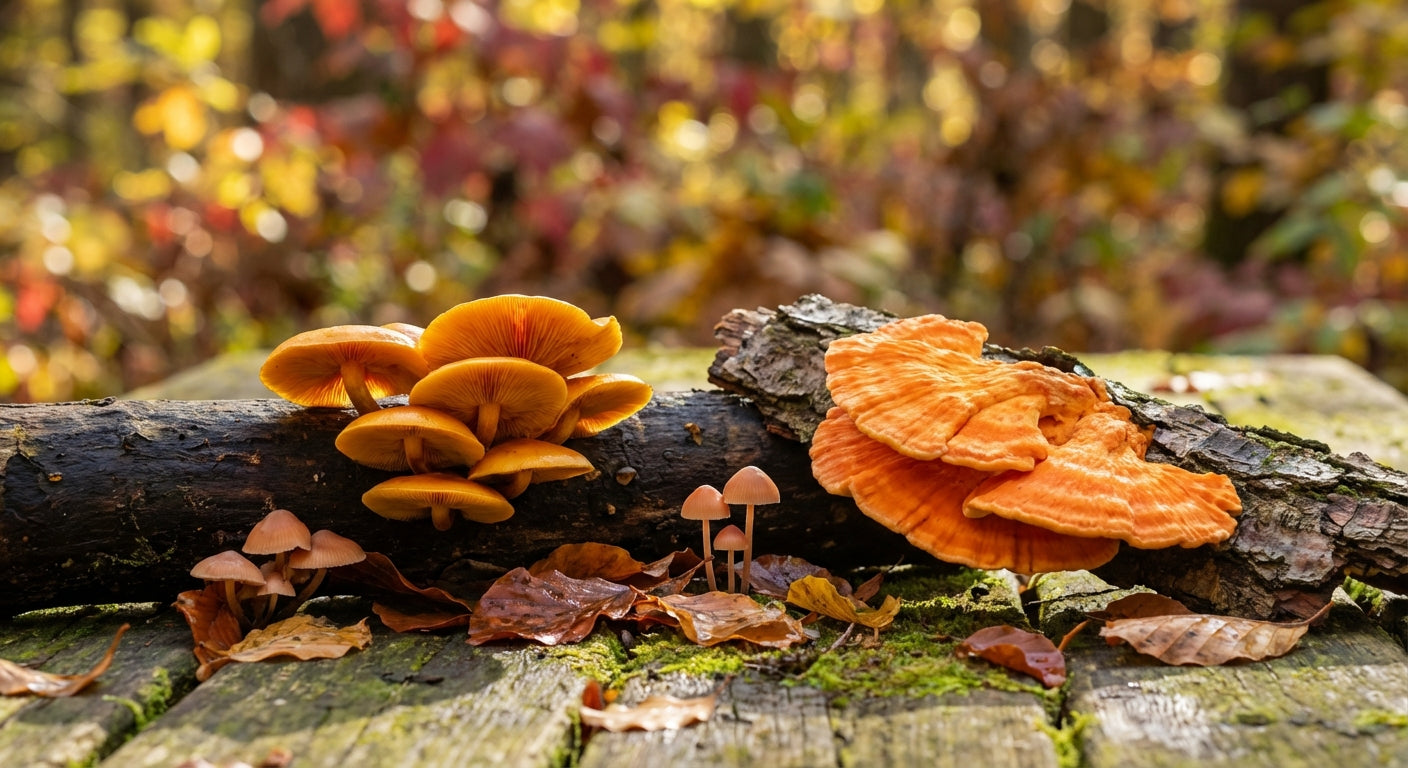
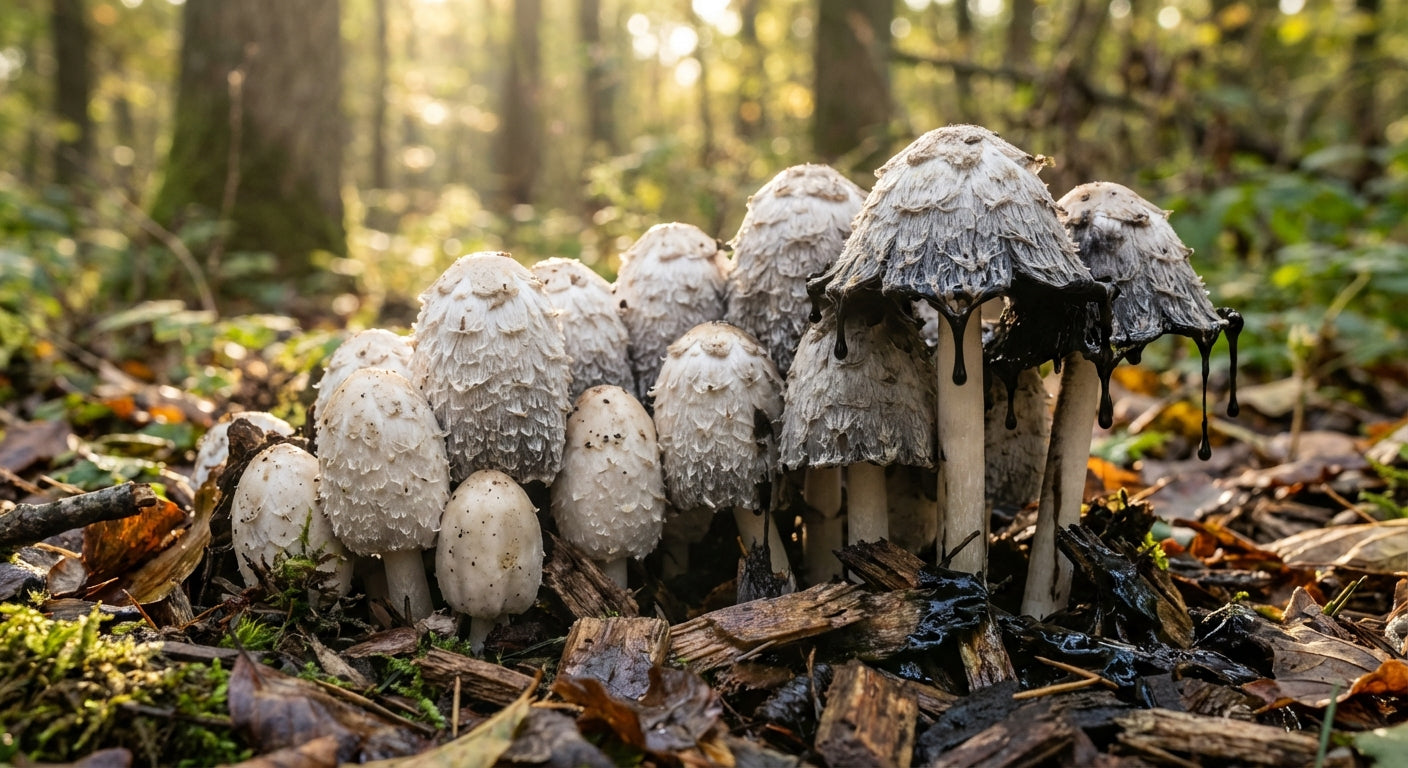
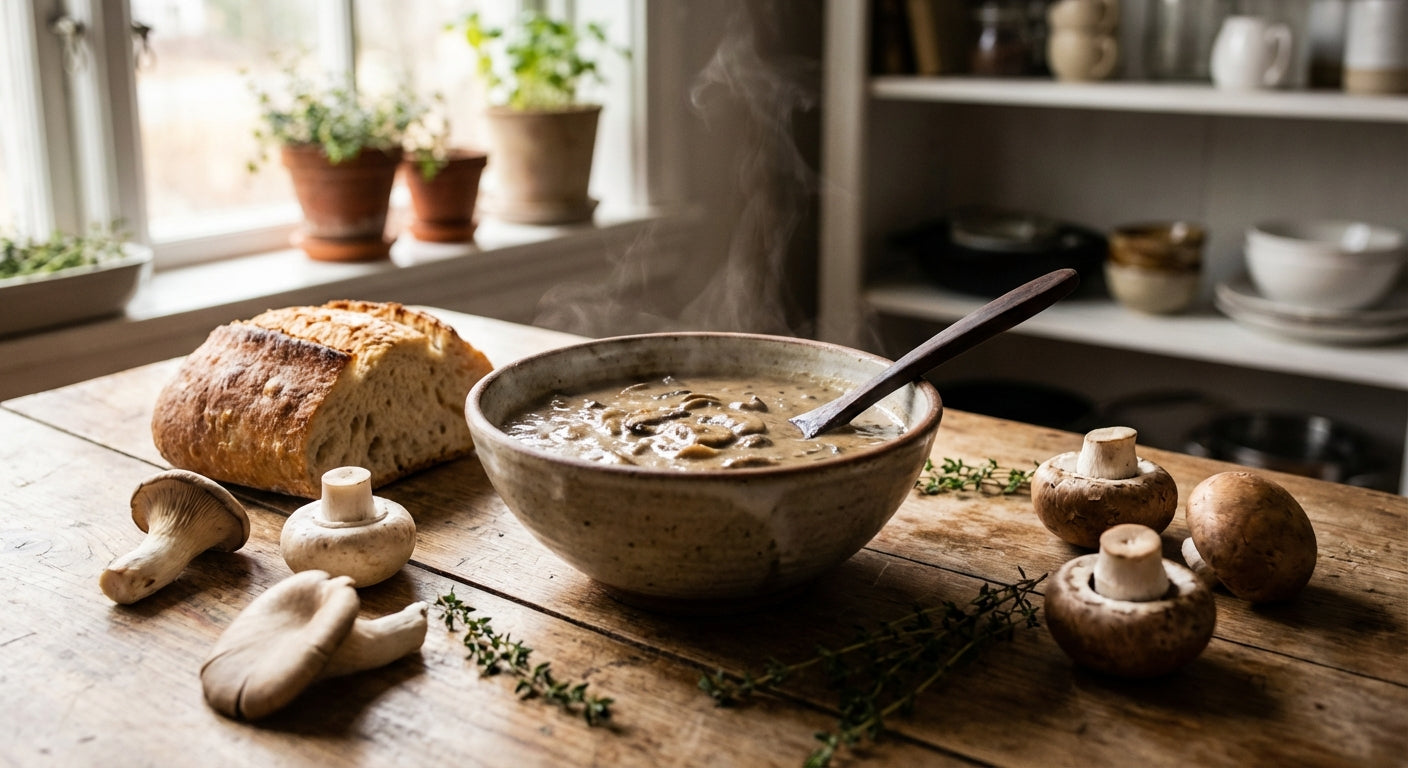
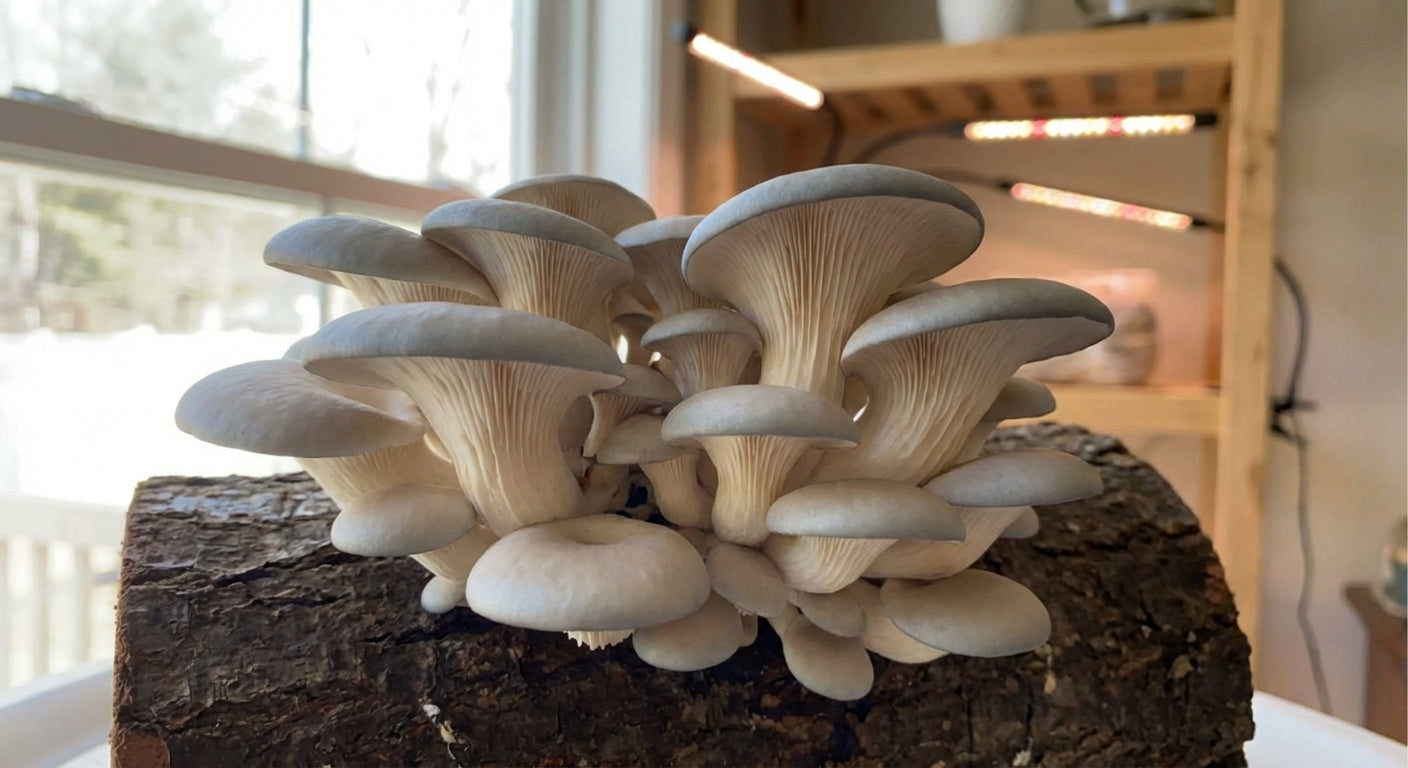
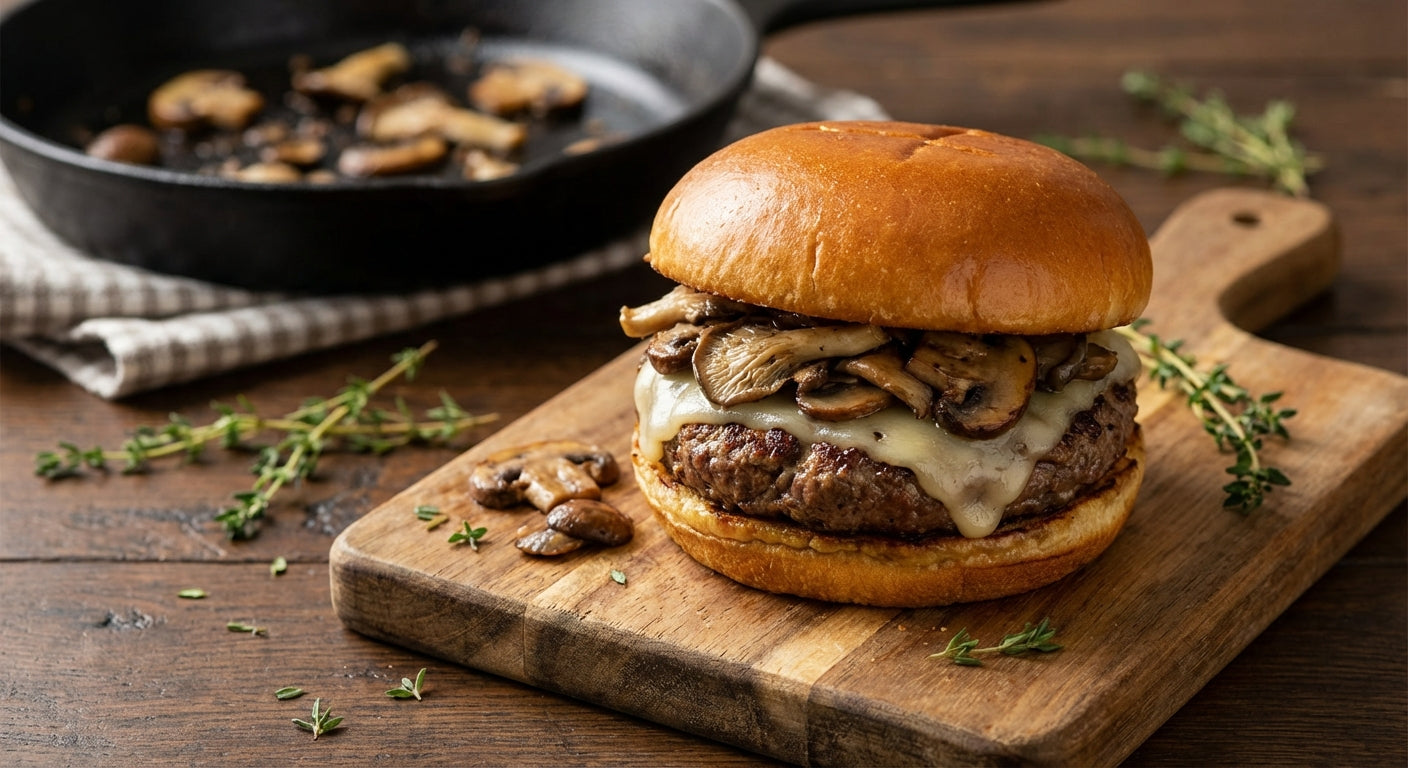



Share:
Reishi Mushroom Recipe: A Flavorful Adventure
Reishi Mushroom Spores: Unveiling the Hidden Wonders of Nature’s Healing Power